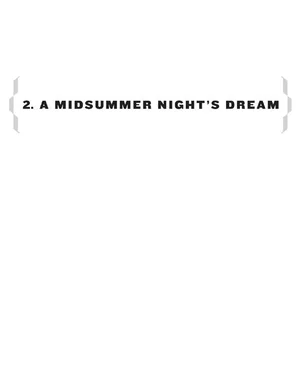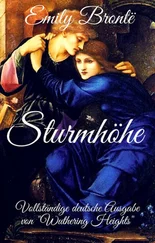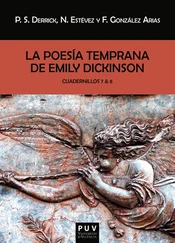Emily Mandel - Station Eleven
Здесь есть возможность читать онлайн «Emily Mandel - Station Eleven» весь текст электронной книги совершенно бесплатно (целиком полную версию без сокращений). В некоторых случаях можно слушать аудио, скачать через торрент в формате fb2 и присутствует краткое содержание. Год выпуска: 2014, ISBN: 2014, Издательство: Knopf, Жанр: Старинная литература, на английском языке. Описание произведения, (предисловие) а так же отзывы посетителей доступны на портале библиотеки ЛибКат.
- Название:Station Eleven
- Автор:
- Издательство:Knopf
- Жанр:
- Год:2014
- ISBN:9780385353311
- Рейтинг книги:4 / 5. Голосов: 1
-
Избранное:Добавить в избранное
- Отзывы:
-
Ваша оценка:
- 80
- 1
- 2
- 3
- 4
- 5
Station Eleven: краткое содержание, описание и аннотация
Предлагаем к чтению аннотацию, описание, краткое содержание или предисловие (зависит от того, что написал сам автор книги «Station Eleven»). Если вы не нашли необходимую информацию о книге — напишите в комментариях, мы постараемся отыскать её.
Station Eleven — читать онлайн бесплатно полную книгу (весь текст) целиком
Ниже представлен текст книги, разбитый по страницам. Система сохранения места последней прочитанной страницы, позволяет с удобством читать онлайн бесплатно книгу «Station Eleven», без необходимости каждый раз заново искать на чём Вы остановились. Поставьте закладку, и сможете в любой момент перейти на страницу, на которой закончили чтение.
Интервал:
Закладка:
He’d called her in the New York office in August. “Will you take a call from Arthur Smith-Jones?” her assistant had asked, and Miranda had frozen momentarily. The name was from an inside joke that she and Arthur had batted around when they were first married. All these years later she had no recollection of why the name Smith-Jones had been funny, but she knew it was he.
“Thank you, Laetitia, I’ll take the call.” A click. “Hello, Arthur.”
“Miranda?” He sounded uncertain. She wondered if her voice had changed. She’d used her most self-assured addressing-large-meetings voice.
“Arthur. It’s been a while.” A moment of silence on the line. “Are you there?”
“My father died.”
She swiveled in her chair to look out at Central Park. In August the park had a subtropical quality that entranced her, a sense of weight and languor in the lushness of the trees.
“I’m sorry, Arthur. I liked your father.” She was thinking of an evening on Delano Island, the first year of their marriage and the only time they’d gone back to Canada for Christmas together, Arthur’s father talking with great animation about a poet he’d just been reading. The memory had dimmed since she’d last retrieved it, imprecision creeping in. She no longer remembered the name of the poet or anything else about the conversation.
“Thanks,” he said indistinctly.
“Do you remember the name of the poet he liked?” Miranda heard herself asking. “A long time ago. When we were there for Christmas.”
“Probably Lorca. He talked about Lorca a lot.”
There was a person in the park wearing a bright red T-shirt that contrasted magnificently with all the green. She watched the T-shirt vanish around a curve.
“He drove a snowplow and did carpentry all his life,” Arthur said. Miranda wasn’t sure what to say to this—she’d known what Arthur’s father’s occupations were—but Arthur didn’t seem to require a response. They were quiet for a moment, Miranda watching to see if the T-shirt would reappear. It didn’t.
“I know,” she said. “You showed me his workshop.”
“I just mean, my life must’ve seemed unfathomable to him.”
“Your life’s probably unfathomable to most people. Why did you call me, Arthur?” Her tone as gentle as possible.
“You were the one I wanted to call,” he said, “when I got the news.”
“But why me? We haven’t spoken since the last divorce hearing.”
“You know where I’m from,” he said, and she understood what he meant by this. Once we lived on an island in the ocean. Once we took the ferry to go to high school, and at night the sky was brilliant in the absence of all these city lights. Once we paddled canoes to the lighthouse to look at petroglyphs and fished for salmon and walked through deep forests, but all of this was completely unremarkable because everyone else we knew did these things too, and here in these lives we’ve built for ourselves, here in these hard and glittering cities, none of this would seem real if it wasn’t for you. And aside from that, she realized, he was currently wifeless.
Arthur was starring in King Lear , presently in previews at the Elgin Theatre. They’d arranged to meet there, because Arthur was in divorce proceedings with his third wife, Lydia, and he feared any restaurant he entered would attract a flock of cameras.
The paparazzi had long since gotten bored of the nonstory of Miranda’s continued post-Arthur existence and had stopped following her, but nonetheless Miranda spent some time on her appearance before she left the hotel room, trying to make herself look as little like her old self as possible. She pinned and slicked her hair into a shiny helmet—in her Hollywood and tabloid lives she’d had a mass of curls—and dressed in her favorite suit, dark gray with white piping. Expensive white high-heeled shoes, of a type she often wore to meetings but that the Hollywood wife Miranda would never have considered.
“You look like an executive,” she said to herself in the mirror, and the thought that flitted behind this was You look like a stranger. She pushed it away.
Miranda set out in the early twilight. The air was clear and sharp, a cool wind off the lake. The familiarity of these streets. She stopped for a decaf latte at a Starbucks and was struck by the barista’s brilliant green hair. “Your hair’s beautiful,” she said, and the barista smiled. The pleasure of walking cold streets with a hot coffee in her hand. Why did no one on Station Eleven have green hair? Perhaps someone in the Undersea. Or one of Dr. Eleven’s associates. No, the Undersea. When she was three blocks from the theater, she put on a knit hat that covered her hair, and dark glasses.
There were five or six men outside the theater, zoom-lens cameras on straps around their necks. They were smoking cigarettes and fiddling with their phones. Miranda felt a deathly stillness come over her. She liked to think of herself as a person who hated no one, but what did she feel for these men if not hatred? She tried to glide by as unobtrusively as possible, but wearing sunglasses after sundown had been a tactical error.
“That Miranda Carroll?” one of them asked. Fucking parasite. She kept her head down in an explosion of flashes and slipped in through the stage door.
Arthur’s dressing room was more properly a suite. An assistant whose name she immediately forgot ushered her into a sitting room, where two sofas faced off across a glass coffee table. Through open doors she glimpsed a bathroom and a dressing room, with a rack for costumes—she saw a velvet cloak—and a mirror ringed in lights. It was from this second room that Arthur emerged.
Arthur wasn’t old, but he wasn’t aging very well. It was disappointment, it seemed to her, that had settled over his face, and there was a strained quality about his eyes that she didn’t remember having seen before.
“Miranda,” he said. “How long has it been?”
This seemed to her a silly question. She’d assumed, she realized, that everyone remembers the date of their divorce, the same way everyone remembers their wedding date.
“Eleven years,” she said.
“Please, have a seat. Can I offer you something?”
“Do you have any tea?”
“I have tea.”
“I thought you would.” Miranda shed her coat and hat and sat on one of the sofas, which was exactly as uncomfortable as it looked, while Arthur fussed with an electric kettle on a countertop. Here we are, she thought. “How are the previews going?”
“Fine,” he said. “Better than fine, actually. Good. It’s been a long time since I’ve done Shakespeare, but I’ve been working with a coach. Actually, I guess coach isn’t the right word. A Shakespeare expert.” He came back to the sofas and sat across from her. She watched his gaze flicker over her suit, her gleaming shoes, and realized he was performing the same reconciliations she was, adjusting a mental image of a long-ago spouse to match the changed person sitting before him.
“A Shakespeare expert?”
“He’s a Shakespearean scholar. University of Toronto. I love working with him.”
“It must be quite interesting.”
“It is. He has this extremely impressive pool of knowledge, brings a lot to the table, but at the same time he’s completely supportive of my vision for the part.”
Supportive of my vision? He’d adopted new speech patterns. But of course he had, because since she’d last seen him there had been eleven years of friends and acquaintances and meetings and parties, travel here and there, film sets, two weddings and two divorces, a child. It made sense, she supposed, that he would be a different person by now. “What a great opportunity,” she said, “getting to work with someone like that.” Had she ever in her life sat on a less-comfortable sofa. She pressed her fingertips into the foam and barely made an impression. “Arthur,” she said, “I’m so sorry about your father.”
Читать дальшеИнтервал:
Закладка:
Похожие книги на «Station Eleven»
Представляем Вашему вниманию похожие книги на «Station Eleven» списком для выбора. Мы отобрали схожую по названию и смыслу литературу в надежде предоставить читателям больше вариантов отыскать новые, интересные, ещё непрочитанные произведения.
Обсуждение, отзывы о книге «Station Eleven» и просто собственные мнения читателей. Оставьте ваши комментарии, напишите, что Вы думаете о произведении, его смысле или главных героях. Укажите что конкретно понравилось, а что нет, и почему Вы так считаете.












